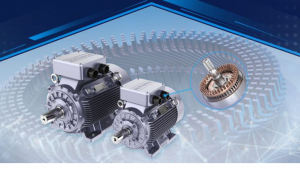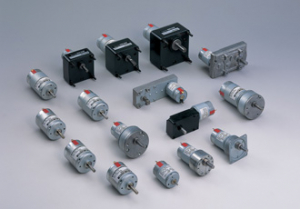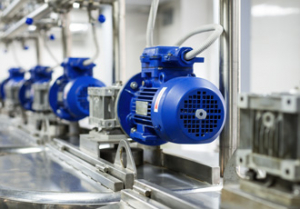Servo drive system simplifies project engineering for machine builders

The Sinamics S210 converter from Siemens was designed specifically for use with the newly developed Simotics S-1FK2 motors, now the company is offering a new servo drive system in five power classes ranging from 50-750W. The converters come with integrated safety functions and enable rapid engineering. In addition, they are connected to the higher-level controller over Profinet and allow simple commissioning using a web server and one-button tuning.
Working in combination with the Simotics servo motors, they enable the highly dynamic movement of minimal loads as well as ultra-precise movement of medium and high loads. The motors are connected to the converters using a One Cable Connection (OCC).
Typical uses for the new drive system include in particular packaging machines, handling applications such as Pick and Place, wood and ceramic processing as well as digital printing.
The functional scope of the Sinamics S210 focuses on highly dynamic motor axis control, while the connected controller, for instance the Simatic S7-1500 or S7-1500T with its extended motion control functionality, takes complete charge of positioning functions for the connected drive axes.
The converter is commissioned entirely using an integrated web server. The one-button tuning function allows automatic optimisation of control parameters, taking into consideration the behaviour of the connected mechanics by different dynamic levels. The integrated safety functions include STO (Safe Torque Off) and SS1 (Safe Stop 1). Both can be actuated using PROFIsafe, STO additionally using a terminal.
In conjunction with the rapid sampling and smart control algorithms of the Sinamics S210, a high-grade encoder system and the combination of low rotor inertia and high overload capability, the servo motors achieve outstanding dynamic performance and precision. Siemens will be showcasing the relevant motors in shaft heights of 20, 30 and 40mm at HANNOVER MESSE at the end of April 2017.
By using the Motion-Connect OCC to connect the Simotics S-1FK2 motors to the converters, the power conductors, encoder signal and brake are grouped together in an exceptionally thin cable measuring just 9mm in diameter, and use a single plug. Its minimal cross-section makes the OCC cable thinner, lighter and more flexible than previous power cables, considerably simplifying the cabling process.
For drag chain applications, there is also a compact one cable connection available which reduces the bending radius to almost half compared to conventional drag chain conductors. The connecting plug comes in a rugged design despite being rotatable and easy to operate at a height of 25mm. Cabling at the converter is just as simple with benefit of user-friendly self-locking plugs and easy-access detachable push-in terminals on the front.
Similar articles
More from Siemens
- Digital Twin car game drives next-gen towards engineering 23rd March 2021
- Young engineers used talent and digital tools to make history 22nd July 2020
- Siemens at forefront of recruiting women into manufacturing 24th June 2020
- Siemens’ MindSphere helps Hosokawa Micron connect its digital factory 15th June 2020












Write a comment
No comments